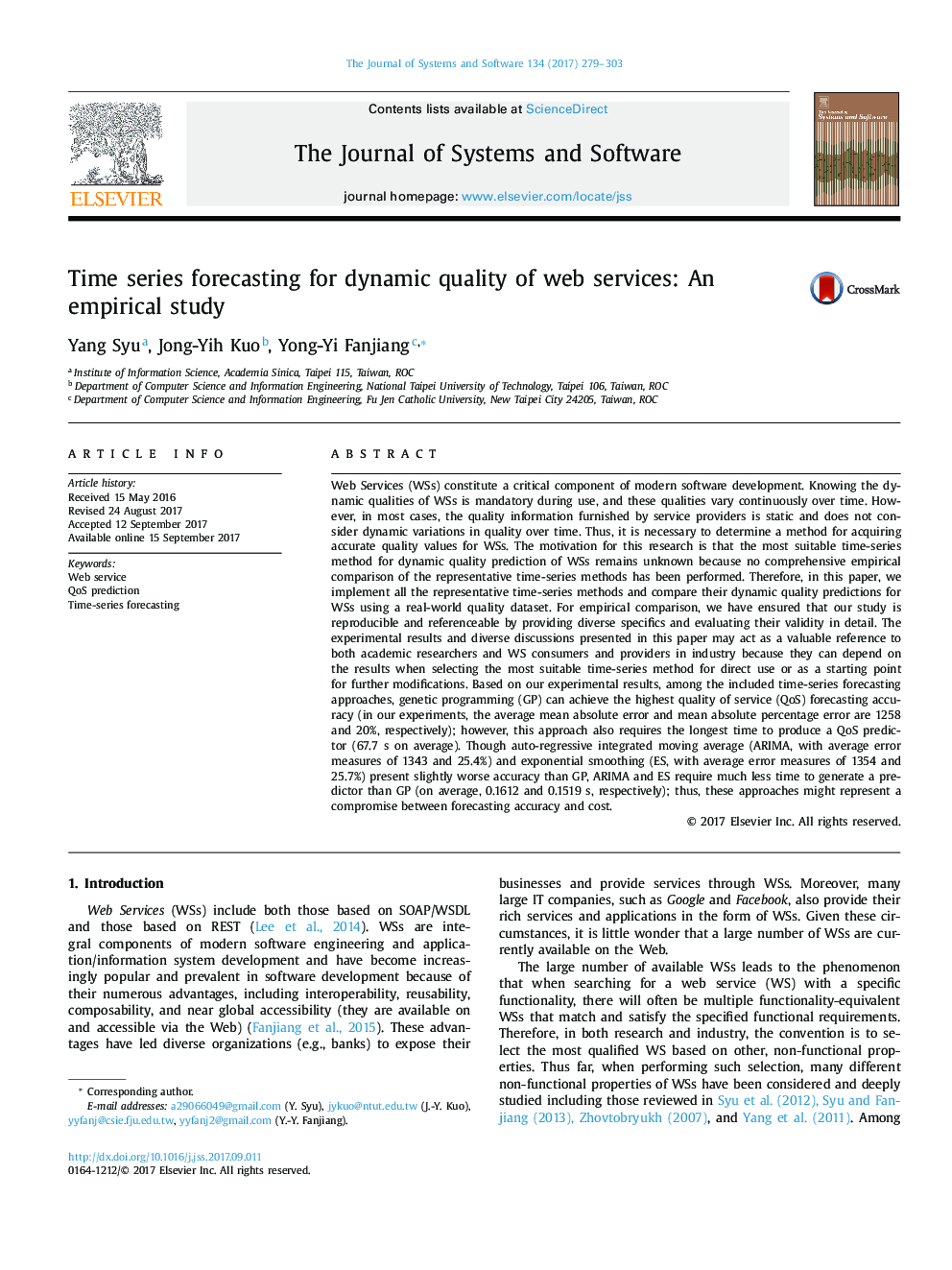| کد مقاله | کد نشریه | سال انتشار | مقاله انگلیسی | نسخه تمام متن |
|---|---|---|---|---|
| 4956347 | 1444513 | 2017 | 25 صفحه PDF | دانلود رایگان |
- QoS furnished by providers doesn't consider dynamic variations over time.
- Time-series method for QoS prediction has been performed served as empirical study.
- Experimental results and discussions act as valuable reference to WS research area.
Web Services (WSs) constitute a critical component of modern software development. Knowing the dynamic qualities of WSs is mandatory during use, and these qualities vary continuously over time. However, in most cases, the quality information furnished by service providers is static and does not consider dynamic variations in quality over time. Thus, it is necessary to determine a method for acquiring accurate quality values for WSs. The motivation for this research is that the most suitable time-series method for dynamic quality prediction of WSs remains unknown because no comprehensive empirical comparison of the representative time-series methods has been performed. Therefore, in this paper, we implement all the representative time-series methods and compare their dynamic quality predictions for WSs using a real-world quality dataset. For empirical comparison, we have ensured that our study is reproducible and referenceable by providing diverse specifics and evaluating their validity in detail. The experimental results and diverse discussions presented in this paper may act as a valuable reference to both academic researchers and WS consumers and providers in industry because they can depend on the results when selecting the most suitable time-series method for direct use or as a starting point for further modifications. Based on our experimental results, among the included time-series forecasting approaches, genetic programming (GP) can achieve the highest quality of service (QoS) forecasting accuracy (in our experiments, the average mean absolute error and mean absolute percentage error are 1258 and 20%, respectively); however, this approach also requires the longest time to produce a QoS predictor (67.7Â s on average). Though auto-regressive integrated moving average (ARIMA, with average error measures of 1343 and 25.4%) and exponential smoothing (ES, with average error measures of 1354 and 25.7%) present slightly worse accuracy than GP, ARIMA and ES require much less time to generate a predictor than GP (on average, 0.1612 and 0.1519Â s, respectively); thus, these approaches might represent a compromise between forecasting accuracy and cost.
Journal: Journal of Systems and Software - Volume 134, December 2017, Pages 279-303
